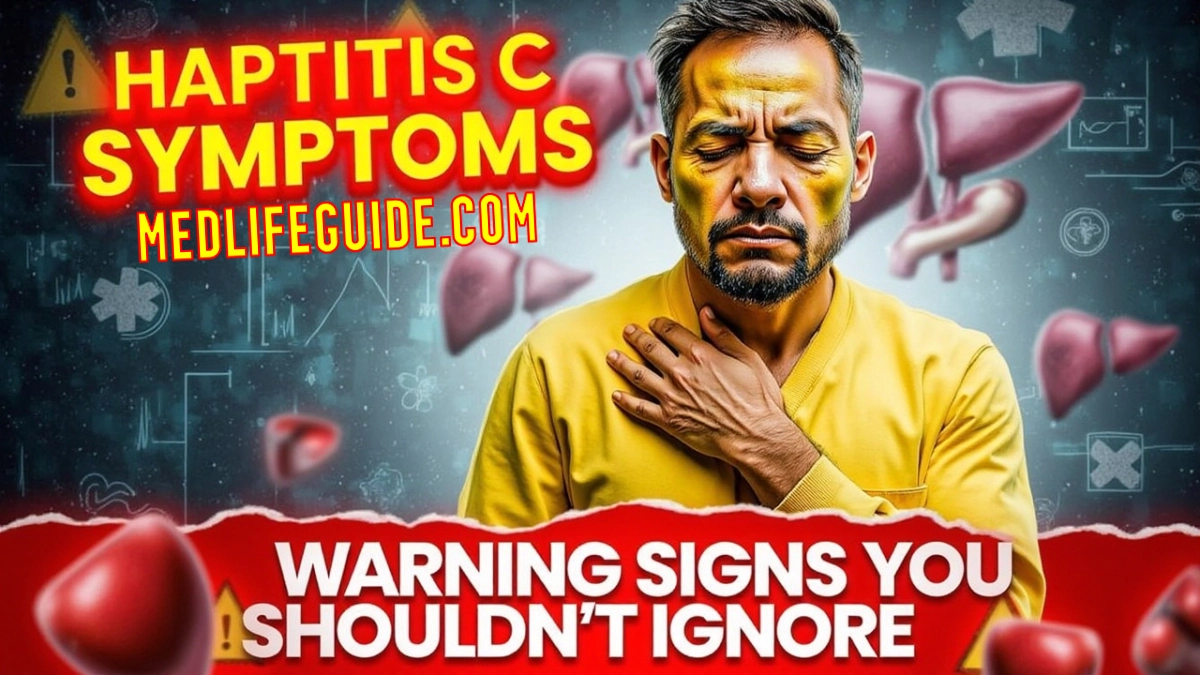Hepatitis C is often called a “silent epidemic” because many people don’t realize they’re infected until serious liver damage occurs. Unlike hepatitis A or B, hepatitis C symptoms can be vague or absent for years, making early detection challenging.
In this guide, we’ll break down:
- Early-stage symptoms (acute hepatitis C)
- Long-term symptoms (chronic hepatitis C)
- When to see a doctor
- Why early testing is crucial
Let’s dive in.
Early-Stage Hepatitis C Symptoms (Acute Phase)
About 70-80% of people with acute hepatitis C experience no symptoms. When symptoms do appear (usually 2-12 weeks after exposure), they may include:
- Fatigue (unexplained tiredness)
- Mild fever (low-grade)
- Muscle or joint pain
- Nausea or poor appetite
- Abdominal discomfort (especially on the right side, near the liver)
- Dark urine (a sign of liver stress)
- Clay-colored stools (due to bile flow disruption)
- Jaundice (yellowing of skin/eyes, though rare in early stages)
Why It’s Tricky: These symptoms mimic the flu or general fatigue, so most people dismiss them.
Chronic Hepatitis C Symptoms: When the Virus Lingers
If untreated, hepatitis C becomes chronic in 75-85% of cases. Over years or decades, it silently damages the liver, leading to:
1. Progressive Fatigue & Weakness
- Unlike normal tiredness, this fatigue feels unrelenting, even after rest.
2. Cognitive Issues (“Brain Fog”)
- Difficulty concentrating, memory lapses, or confusion—often called “hepatic encephalopathy” in advanced cases.
3. Digestive Problems
- Persistent nausea
- Loss of appetite & weight loss
- Bloating or fluid retention (ascites)
4. Skin & Blood Changes
- Itchy skin (due to bile buildup)
- Easy bruising or bleeding (liver dysfunction affects clotting)
- Spider angiomas (tiny, visible blood vessels on the skin)
5. Advanced Liver Damage Signs
- Jaundice (yellow skin/eyes)
- Swelling in legs/abdomen (edema/ascites)
- Dark urine & pale stools
- Liver cirrhosis or liver cancer (in severe cases)
When to See a Doctor
Seek medical advice if you:
- Have risk factors (past IV drug use, unsterile tattoos, blood transfusions before 1992)
- Notice prolonged fatigue, jaundice, or abdominal pain
- Had potential exposure (e.g., shared needles, accidental needle sticks)
Testing is simple: A blood test (HCV antibody test) can confirm infection.
Why Early Detection Matters
- Hepatitis C is curable with modern antivirals (e.g., Harvoni, Epclusa).
- Undiagnosed cases can lead to cirrhosis, liver failure, or cancer.
- Silent progression means symptoms often appear too late.
Action Steps & Takeaways
- Get tested if you have risk factors—even without symptoms.
- Monitor for subtle signs like fatigue, nausea, or dark urine.
- Treat early to prevent liver damage.
Final Thoughts
Hepatitis C symptoms are often missed until liver damage is advanced. Knowing the signs—both early and late—could save your life or someone else’s.
Have questions or personal experiences with hepatitis C? Share in the comments!
For more detail about causes and preventions of Hepatitis C click here

